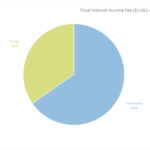Florida PIP Coverage Explained: What You Need to Know
Navigating the intricate waters of car insurance can often be a daunting task, particularly in states like Florida that have unique requirements. One such requirement is Personal Injury Protection (PIP) coverage, an essential aspect of Florida’s no-fault insurance system. Understanding PIP is crucial for drivers, making it easier to handle claims and ensure compliance with state laws. This article delves into the details of PIP coverage, offering insights and practical advice for drivers both in the US and UK seeking to understand this critical aspect of Florida car insurance.
What is PIP Insurance?
Personal Injury Protection, or PIP insurance, is a type of auto insurance coverage designed to cover medical expenses and, in some cases, lost wages regardless of who is at fault in an accident. In Florida, PIP is mandatory under the state’s no-fault insurance laws, which means that every driver must carry a minimum amount of this insurance. This coverage is intended to reduce the need for litigation by ensuring that anyone injured in an accident can receive timely care and financial support for their recovery, without waiting to establish fault.
The Basics of Florida’s No-Fault Insurance Law
Florida’s no-fault insurance law was designed to streamline the process of compensating individuals involved in automobile accidents. By mandating PIP coverage, the law minimizes the need for lawsuits to determine fault before medical expenses and lost wages can be paid. Instead, each driver’s insurance policy is responsible for covering their medical expenses up to the limit of their PIP coverage. While this law expedites the care process, it also imposes strict guidelines on policyholders regarding coverage limits and claims filings.
Mandatory Minimum Requirements for PIP Coverage
In Florida, the law requires all drivers to maintain a PIP policy with a minimum of $10,000 in coverage. This minimum can seem low given the high costs of medical care, yet it serves as a baseline designed to cover initial medical expenses and loss of income. Beyond these limits, individuals involved in more serious accidents may need to explore additional coverage or avenues for compensation. This minimum requirement helps provide a safety net for basic emergency treatment and financial security, promoting faster recovery without immediate financial hardship.
What PIP Insurance Typically Covers
PIP insurance primarily covers medical expenses for the driver and passengers, regardless of fault, following a vehicle accident. It can include hospital expenses, surgical procedures, rehabilitation costs, and sometimes dental treatments related to the accident. Additionally, PIP can cover a percentage of lost wages and necessary services, like childcare, if you’re unable to perform them due to injuries. What’s more, a death benefit is often included, providing financial assistance to the family of anyone fatally injured in a crash covered by the policy.
Exclusions and Limitations of PIP
While PIP provides broad coverage, it’s crucial to understand its limitations. Coverage is typically capped at specific amounts, with only a portion of medical expenses and lost wages covered. For instance, PIP usually covers only 80% of medical bills and 60% of lost wages. Furthermore, PIP does not cover vehicle repairs or property damage; these require additional types of insurance. Understanding these limitations emphasizes the importance of comprehensive policy planning to ensure all potential losses are adequately covered.
How to File a PIP Claim
Filing a PIP claim involves notifying your insurance company promptly after an accident. Florida law requires that you seek medical treatment within 14 days of the incident for PIP benefits to apply. Document all medical treatments and related expenses carefully, ensuring that you submit complete and accurate information to your insurer. The timely and correct filing of a PIP claim is critical to receiving the benefits you’re entitled to, and many insurers offer online filing options for convenience.
The Impact on Insurance Premiums
PIP insurance can impact your overall insurance premiums, often increasing them due to Florida’s no-fault requirements. Drivers with a PIP claim history might experience higher premiums upon policy renewal. Factors like age, driving record, and the chosen deductible also play a role in determining the premium cost. Shopping around and comparing different insurers can help mitigate these costs while ensuring you maintain the necessary coverage and financial protection.
The Role of PIP in Accident Recovery
PIP coverage plays a crucial role in the accident recovery process by offering quick access to necessary medical treatments without the burden of determining fault. Ensuring timely medical care not only aids physical recovery but also provides peace of mind knowing that financial stresses are reduced. For insured drivers in Florida, PIP acts as a reliable safety net, allowing them to focus on their recovery with fewer immediate financial concerns.
Differences Between US and UK Insurance Practices
While PIP is a unique aspect of the US insurance landscape, primarily seen in states with no-fault insurance laws like Florida, drivers in the UK follow different systems. UK insurance typically involves at-fault coverage, where the responsible party’s insurance pays for damages. Understanding these differences is essential for UK residents driving in the US, as it prepares them for potential discrepancies in expectations and processes related to this.
Disclaimer:
The information provided in this article is for general informational purposes only and should not be considered financial, legal, or insurance advice. While we strive for accuracy, regulations and laws regarding Personal Injury Protection (PIP) insurance can change and may vary by location. We advise consulting with a qualified insurance or legal professional to address specific circumstances. The author and publisher do not assume any liability for any decisions made based on the information in this article.










